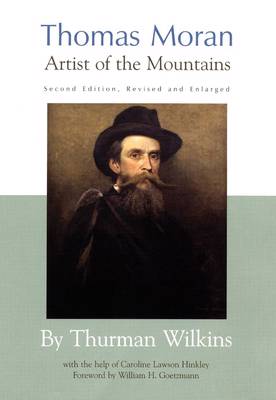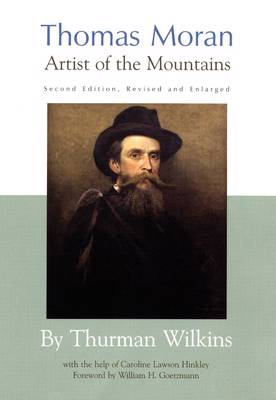
Door een staking bij bpost kan je online bestelling op dit moment iets langer onderweg zijn dan voorzien. Dringend iets nodig? Onze winkels ontvangen jou met open armen!
- Afhalen na 1 uur in een winkel met voorraad
- Gratis thuislevering in België vanaf € 30
- Ruim aanbod met 7 miljoen producten
Door een staking bij bpost kan je online bestelling op dit moment iets langer onderweg zijn dan voorzien. Dringend iets nodig? Onze winkels ontvangen jou met open armen!
- Afhalen na 1 uur in een winkel met voorraad
- Gratis thuislevering in België vanaf € 30
- Ruim aanbod met 7 miljoen producten
Zoeken
Omschrijving
This extensively revised edition of Thurman Wilkins's masterful and engaging biography - well illustrated in color and black-and-white - draws on new information and recent scholarship to place Thomas Moran more securely in the milieu of the Gilded Age. It also portrays more fully the controversies that surrounded the art of Moran's time, as he became the Dean of American Painters. The American West was the subject of Thomas Moran's greatest artistic triumphs - Yosemite, the Grand Canyon of the Colorado, Zion Canyon, the Virgin River, Colorado's Mountain of the Holy Cross, and the Grand Tetons - but his travels with Ferdinand V. Hayden's geological surveys of the Upper Yellowstone were matched by trips to his native Britain and to Venice, Florida, the Spanish Southwest, and Old Mexico. These scenes inspired memorable landscapes and seascapes, as did the sojourns of the Moran family in Pennsylvania, New Jersey, and East Hampton, Long Island, when they retreated from the demands of the New York art scene. In the 1880s Moran and his artist wife, Mary Nimmo Moran, also threw themselves into the etching craze of the period, creating some of the finest prints produced in the United States. Moran was an artist happy in his work. He wrote, I have always held that the grandest, most beautiful, or wonderful in nature, would, in capable hands, make the grandest, most beautiful, or wonderful pictures. The New York Times said of the first edition of this unique account of his life, Moran's mastery comes through clearly and awesomely and often, pleasurably. Readers will find the new edition equally enjoyable.
Specificaties
Betrokkenen
- Auteur(s):
- Uitgeverij:
Inhoud
- Aantal bladzijden:
- 464
- Taal:
- Engels
Eigenschappen
- Productcode (EAN):
- 9780806130408
- Verschijningsdatum:
- 15/04/1998
- Uitvoering:
- Hardcover
- Formaat:
- Genaaid
- Afmetingen:
- 188 mm x 261 mm
- Gewicht:
- 1111 g

Alleen bij Standaard Boekhandel
+ 101 punten op je klantenkaart van Standaard Boekhandel
Beoordelingen
We publiceren alleen reviews die voldoen aan de voorwaarden voor reviews. Bekijk onze voorwaarden voor reviews.











